The Dangerous Job a Mom Was Willing to Put Her Life on the Line For
Japan, Germany, Afghanistan, Qatar. For her job with the U.S. Air Force, single mother Mandana Zenhari has lived all around the world — most recently without her two daughters.
“I’ve been deployed overseas for more than three out of the last four years,” says the 59-year-old civilian procurement adviser in a frank heart-to-heart during a rare visit home to Torrance, Calif., as part of Yahoo Parenting’s “What It’s Like” original video series. “It was hard not being here for milestones, birthdays, first day of school, date nights,” she adds, admitting that she used to feel guilty “constantly that I couldn’t be here.”
But the “hazard pay” that she earned by going to work in a foreign country (plus overtime from essentially doubling her hours to 80 a week while on assignment) more than doubled her $105,000 salary to between $220,000 and $230,000, making it an opportunity that was impossible to ignore. “I was a struggling single mother having a very hard time making ends meet, and knowing that I could earn more money in a relatively short period of time, and that money could really go a long way to help my family, was a huge enticement for me,” she explains. “And I felt like I could give back — not only give back to my country, but to some of these countries.”
STORY: I Never ‘Do It All’ — and I’m OK With That
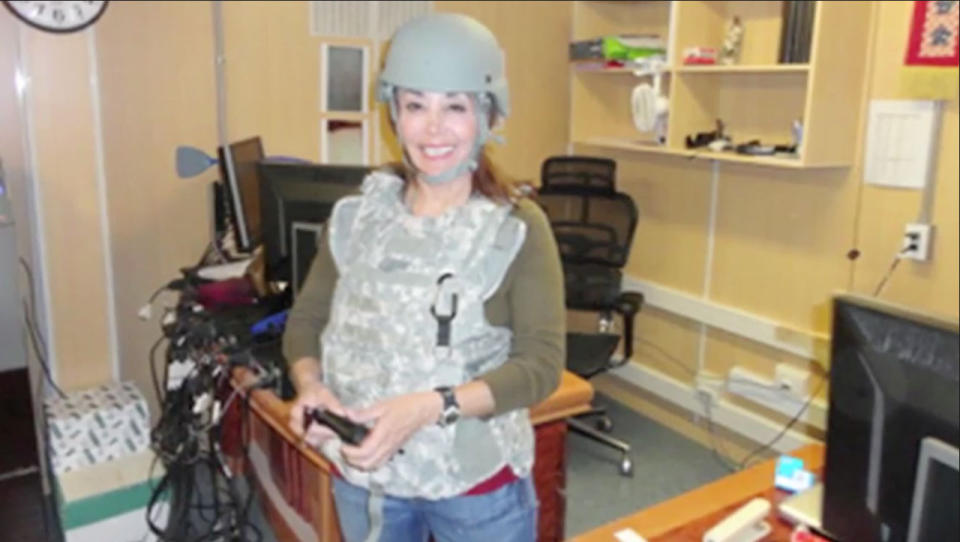
Mandana Zenhari in Afghanistan. (Photo: Yahoo Parenting)
For more than 22 years, Zenhari was a civilian contract manager for the Air Force. (She began working for a private company last summer.) Her overseas travel, though, began in 2002 — and she took her family along. Her daughters, Mona Khalifeh, now 24, and Emilia Khalifeh, now 21, along with Zenhari’s ex-husband, from whom she split in 2006, lived with her in Japan for two years and Germany for four years starting when Mona was just 11 and Emilia was 8. “When I came back … I wanted to travel some more,” the mom says. So she jumped at the chance to volunteer for a 15-month stint in Afghanistan in 2011, even though her family was not allowed to tag along.

Zenhari and her daughters, Mona and Emilia. (Photo: Yahoo Parenting)
Born in Iran, where she lived until shortly after her teens, Zenhari speaks Farsi and says, “I felt this familiarization with the country of Afghanistan because of the language and cultural closeness that [I felt and] thought it would be amazing.” Noting that she was uniquely poised to be “helpful to my organization,” the mom declares, “I was willing to take the risk. … I accepted the possibility of maybe a little danger might be part of the deal, but I was ready.”
Her daughters? Not so much. “At first, they thought that I was crazy,” she says, recalling that they asked, “Why would you want to go into the midst of the war?” “What is in Afghanistan, exactly?” And “Will we be able to come visit you?” The answers she gave were, “Not much, no. It will be me by myself,” she says. “They said, ‘Well, why do you want to do it?’ But I got them to see it my way. … By the time that I did deploy, I really did have the support of everyone.”
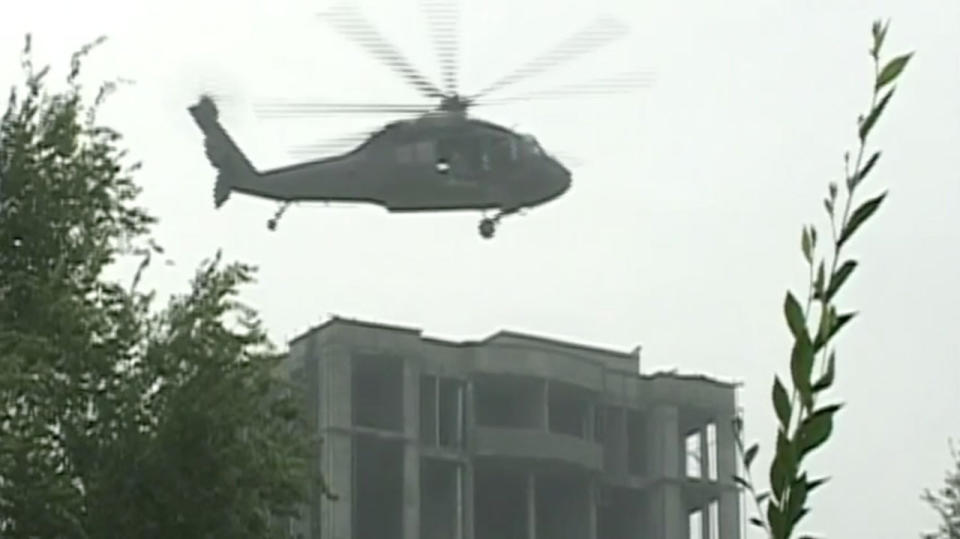
Afghanistan in 2011, when Zenhari began a 15-month stint working there. (Photo: Yahoo Parenting)
Zenhari’s ex-husband was essential to keeping life as normal as possible for Emilia, then 17, while the couple’s elder daughter, Mona, was at college, and the mom jetted off. “He came here and lived with her,” Zenhari says, “so that kept her in her familiar surroundings, with her dog, and she didn’t have to make an adjustment, although, you know, being back with her dad was an adjustment.”
“Had [the girls] been 4 or 6 years old, I would not have done it,” the mom says. “But I felt good enough about them being able to take care of themselves and being able to ask for whatever help it was that they needed that made me feel comfortable about leaving.” Not to say that she wasn’t emotional. “Part of me was definitely very sad that I was leaving them behind,” she says. At departure, she remembers, “I was trying to put on a brave face, saying that, ‘This is just part of life and there are times that parents are not always there and there will always be a homecoming. This is just an until-we-meet-again kind of a thing.’”
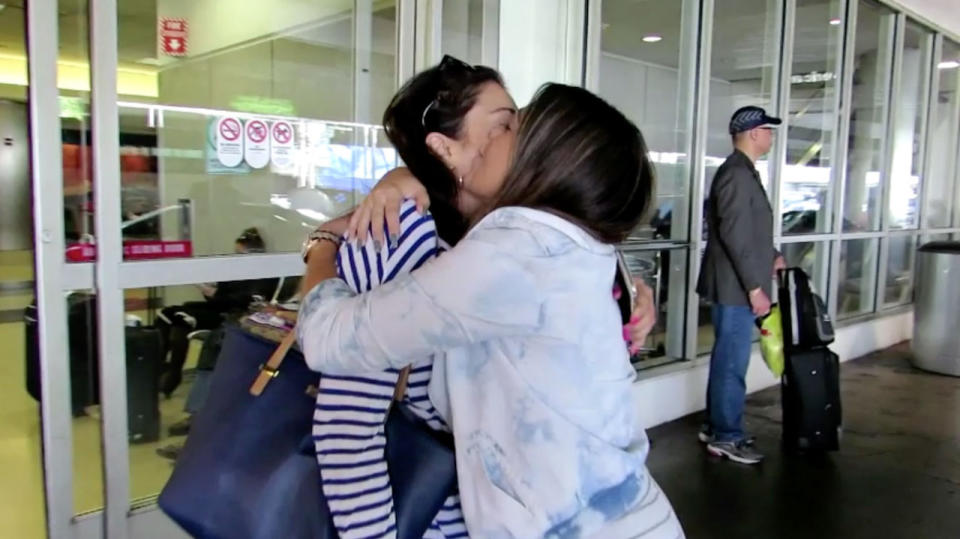
Zenhari and Emilia at the Los Angeles Airport. (Photo: Yahoo Parenting)
Yet the reality of how different Zenhari’s life was about to become hit home on her first day in Afghanistan, Sept. 8, 2011. “That was the day that our embassy came under attack,” she says. “So I was at the airport waiting to be picked up and not knowing what was going on. We had to go shelter in place [and] within maybe an hour or so we were told [the airport was] under attack. The U.S. embassy was under attack.” Zenhari was trapped at the airport for two days. “I was so scared that I went without eating,” she says. “You could hear the shelling. You could hear helicopters hovering overhead very close and the constant sound of the PA system: ‘Do not come out. Shelter in place.’ After that, things became a little bit more relaxed, if you will.” Zenhari remained in Afghanistan for more than a year.
“I never thought, ‘What did I get myself into?’ I was slightly excited, actually,” she says. “I was interested to see what went on.” Having lived at an Air Force base in California, she says she was used to a military presence, but the full gear and body armor, including automatic rifles, “took some getting used to.” Other issues included 12-plus hour days, “very tiny rooms” of up to four people in the same living quarters, and difficulty getting in touch with her daughters.
“As a working mom, of course, the first thing that pops in your head every morning when you wake up, you realize you’re not home,” she explains. “And I had to be mindful of the time difference, [in terms of] when to call home and if it was in the middle of the night, you didn’t want to bother anybody.” The girls could not call Zenhari, though she could make “morale calls,” as she says the Air Force calls them, twice a day. “But if they miss your call, they cannot call you back.” Each time there was an attack, she adds, “I felt the need to pick up the phone and tell them that I was safe. Most of the time, they didn’t know there was an attack. Then after a while, I’m like, ‘You know, maybe they shouldn’t know about all of these attacks,’ because they were happening a lot. But I felt like they needed to know that I was OK regardless.”
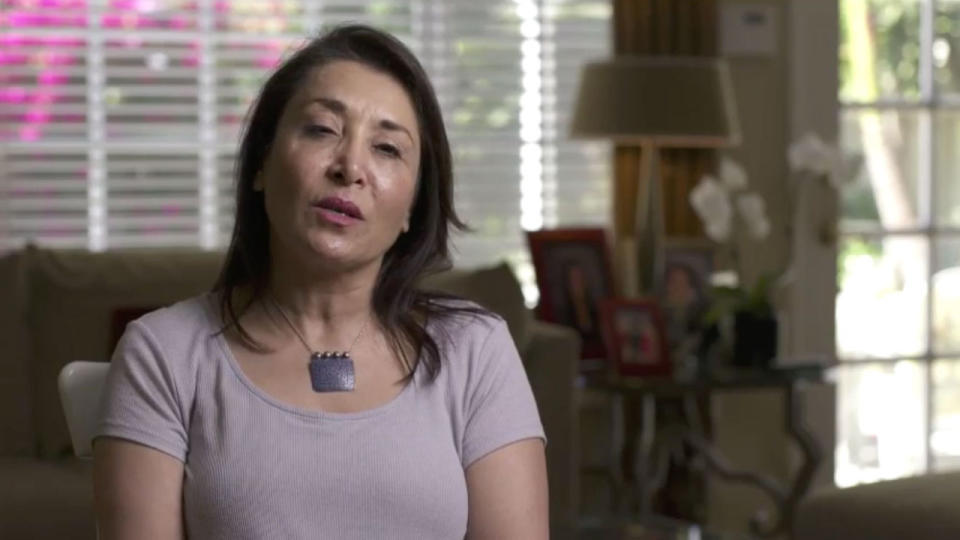
Zenhari (Photo: Yahoo Parenting)
Keeping close during that time required creativity — including a video recording of Emilia’s prom. “I got to talk to her beforehand as she was getting ready and afterward so I felt like I was there,” Zenhari says. “Obviously, it wasn’t as good as having been here and sending her off myself.” The staff often uses Skype, she says, “So it’s not that you don’t get to see [your loved ones]; it’s just you cannot touch them. You always miss the physical touch.” Zenhari and her girls “hug and kiss a lot,” admits the mom. “I miss … knowing that I could hold them and sit with them and, you know, have them fall asleep on my lap, if they wanted to.”
The hardest part of being deployed, though, she confesses, was readjusting to three-week visits with her family. “Every three to four months, you get to come home and have what they call an R&R: rest and recuperation. But your mind is really back there, where you came from, because it is such a huge change,” she says. “The first week really is spent trying to readjust. The second week, you’re delighted and you’re so happy to be with them. And the third week, you’re sad to be leaving them. I had to constantly go through those cycles.”
There were lots of benefits to her time away too. “My deployment overseas … brought the kids closer to their father, I believe, 100 percent, because he was much more of a present dad,” says Zenhari. Emilia was only 13 years old when the parents separated. “So this [time together] helped Emilia to … heal in many ways and she is very close to him right now,” the mom says. “They both are.”
Her ex also “stepped up to the plate,” she says, and relayed news about the girls daily, for which she’s “very grateful.” His help, she adds, brought her to “consider him a friend a lot more so today than I did 10 years ago.”

(Photo: Yahoo Parenting)
Ironically, her daughters grew closer to her as well. “We made time to make those daily phone calls and to go over the events of the day,” Zenhari explains. “And had I been home, a lot of times we would just brush against each other in passing and not really talk as much about things, but while you’re deployed, you make time. … We got to talk a lot more and listen a lot more than normally, I would say.”
The young women also proved to her, and to themselves, how capable they are. “Mona took on the mothering role, if you will. … She felt that responsibility that, as an older sister, she had to do more for her younger sister,” says Zenhari. “Not only did they become closer as sisters, but she learned what a mother would do.” That independence is an advantage, says Zenhari: “I think, as parents, we try to overparent at times. We are very overprotective of our children and, as a result, we don’t allow them to explore or try something. If they fall, it’s OK. Get up. Dust yourself [off]. … I really can tell that my kids, as they are today, could be in any part of the world, left alone in a city, and be able to fend for themselves and take care of themselves.”
Then there’s the bigger message of what this job, this travel, this risk, sends her daughters. “It was important for me to [show] that women could be strong, could hold a position of responsibility, and could do well, all the while providing for their family and maybe doing a little bit better as a result of a tough period of time that they went through,” Zenhari says. “The rewards could be twofold: [The girls] could make their lives better as well as making them stronger and the parent stronger.”
She believes her daughters get that message. “They have told me on many occasions that they are proud of what I have done,” she says. “Actually, I hear it more through the grapevines, if you will, that they were talking about me to someone … and say, ‘Hey, my mom did this and we’re very proud.’” Now that Zenhari is working in Qatar for a private company, she’s traveled much less this past year. She divides her stateside time between L.A. and Myrtle Beach.
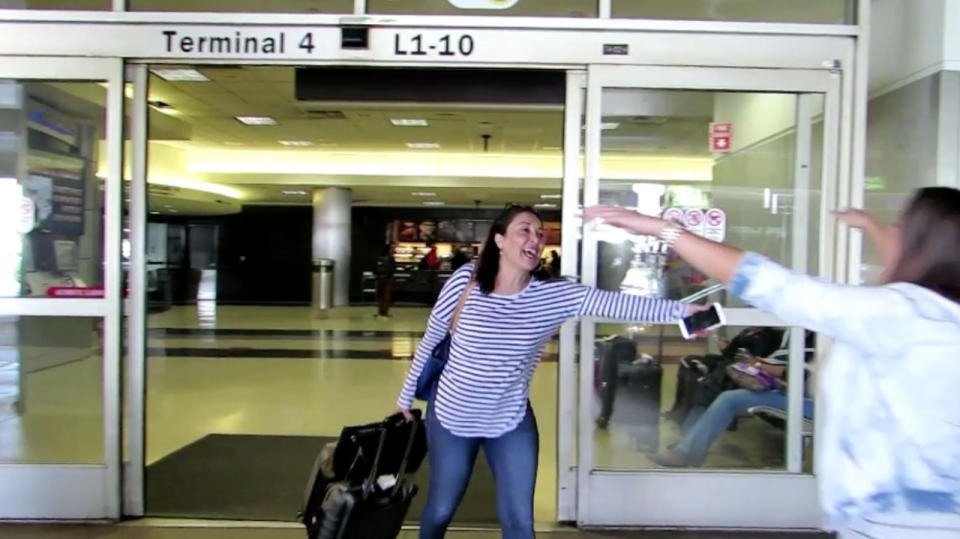
(Photo: Yahoo Parenting)
When she looks back on her years living in a war zone, separated from her kids, though, she admits, “It was not easy, but I am very glad that I did it [because] I believe my daughters are stronger as a result. They have come to know their own strengths and vulnerabilities and I couldn’t be more proud of them.”
“What they went through during my consecutive deployments, and what they learned from it, and how they are conducting their lives as young adults today, I think, is all as a result of the fact that we traveled,” says Zenhari. “We did not, just did not, stay in one place and go with the status quo. It was good for them. It was good for me. Yes, we had to make some sacrifices, but I think the end result speaks for itself.”
Please follow @YahooParenting on Facebook, Twitter, Instagram, and Pinterest. Have an interesting story to share about your family? Email us at YParenting (at) Yahoo.com.

